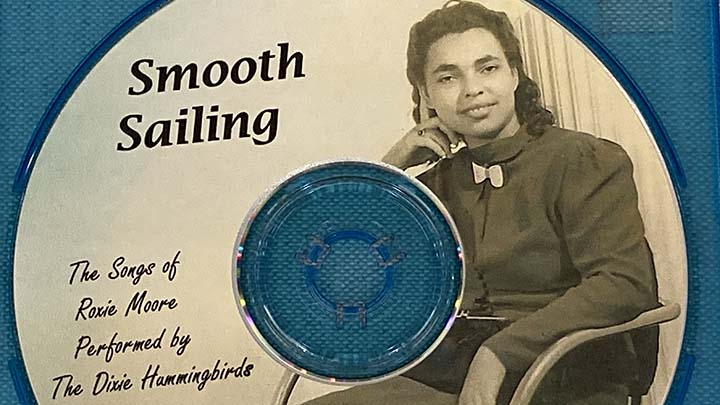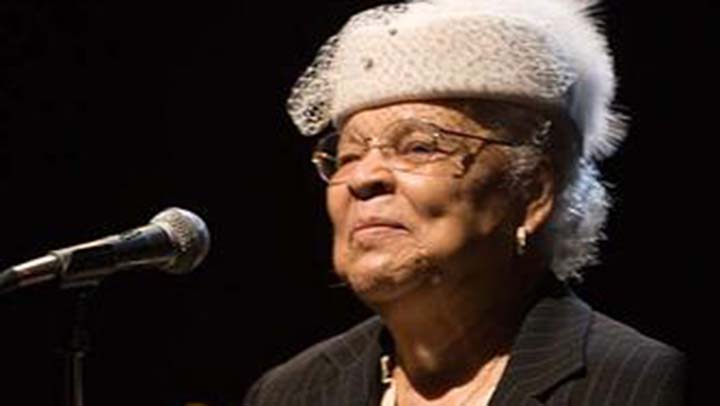Student brings to light the life and times of Black gospel songwriter Roxie Moore
In her presentation “Live Right, Die Right: The Life and Times of Gospel Songwriter Roxie Ann Moore” on Wed., May 3, at 4 p.m., in Sterling Memorial Library, PhD candidate Ambre Dromgoole (MAR ’17) will discuss the life and times of the influential gospel musician and composer.
Moore is one of several Black female musicians that Dromgoole features in her dissertation “‘There’s a Heaven Somewhere’: Itinerancy, Intimacy, and Performance in the Lives of Gospel Blues Women, 1915–1973.” As her subjects, Dromgoole chose innovators, like Roxie Moore, who experimented with different musical styles and genres, making significant contributions to the music industry: Alice Coltrane, Nina Simone, Sister Rosetta Tharpe, Louise Tucker, and others. She also looked at the ways these women, who were contemporaries—and who all lived sometimes difficult lifestyles—supported each other.
Moore was a composer who wrote countless pieces of music for legendary gospel groups of the 20th century, including the Dixie Hummingbirds and the Angelic Gospel Singers. “Even though Roxie is not the only person that appears in my research, she is the heartbeat of it,” Dromgoole explained.
Serendipity
The year before Dromgoole entered the doctoral program at Yale—in African American Studies and Religious Studies—while waiting for a cab, she had a chance encounter with Jerry Zolten, a documentary filmmaker and music scholar. Zolten led Dromgoole to the woman who would later lead her to the subject matter for her dissertation.
When the two met, Zolten had just finished a documentary film about the Dixie Hummingbirds. He had interviewed Moore before her death in 2012 and offered to send Dromgoole his unreleased footage. He also introduced her to Moore’s daughter and family, who had “boxes and boxes and boxes of everything from letters and unpublished book manuscripts, recordings, and royalty statements.”
“That was really significant,” Dromgoole said, “and is why Roxie is so important to me and why I’m paying such careful attention to her archive. Going into this work, I thought it would be like other histories where there is nothing tactile about people who aren’t necessarily included in popular historical narratives. I thought this was just going to be an oral history. These things completely shifted the way I told her story.”
Legacy
Moore stayed out of the limelight during her lifetime, but Dromgoole believes she left this wellspring of materials behind knowing that somebody would eventually come looking. And Dromgoole did.
“I love to talk about that,” Dromgoole said. “That will be the thrust of the presentation that I give, because those aren’t necessarily the things that are included in the dissertation.”
“Through recordings and images, Roxie Moore is also featured in the current exhibition Maker of a Kindly Permanence at the Irving S. Gilmore Music Library through May 31, curated by Dromgoole and Libby Van Cleve with organizing curator Richard Boursy.
Read about Dromgoole’s recent interview with the legendary Clark Sisters gospel quartet for the Major Figures in American Music Collection of the library’s Oral History in American Music program.
—Deborah Cannarella
Images: Ambre Dromgoole (MAR ’17), photo by Judy Sirota Rosenthal; CD cover from the exhibition Maker of a Kindly Permanence; Roxie Ann Moore, ca. 2008





